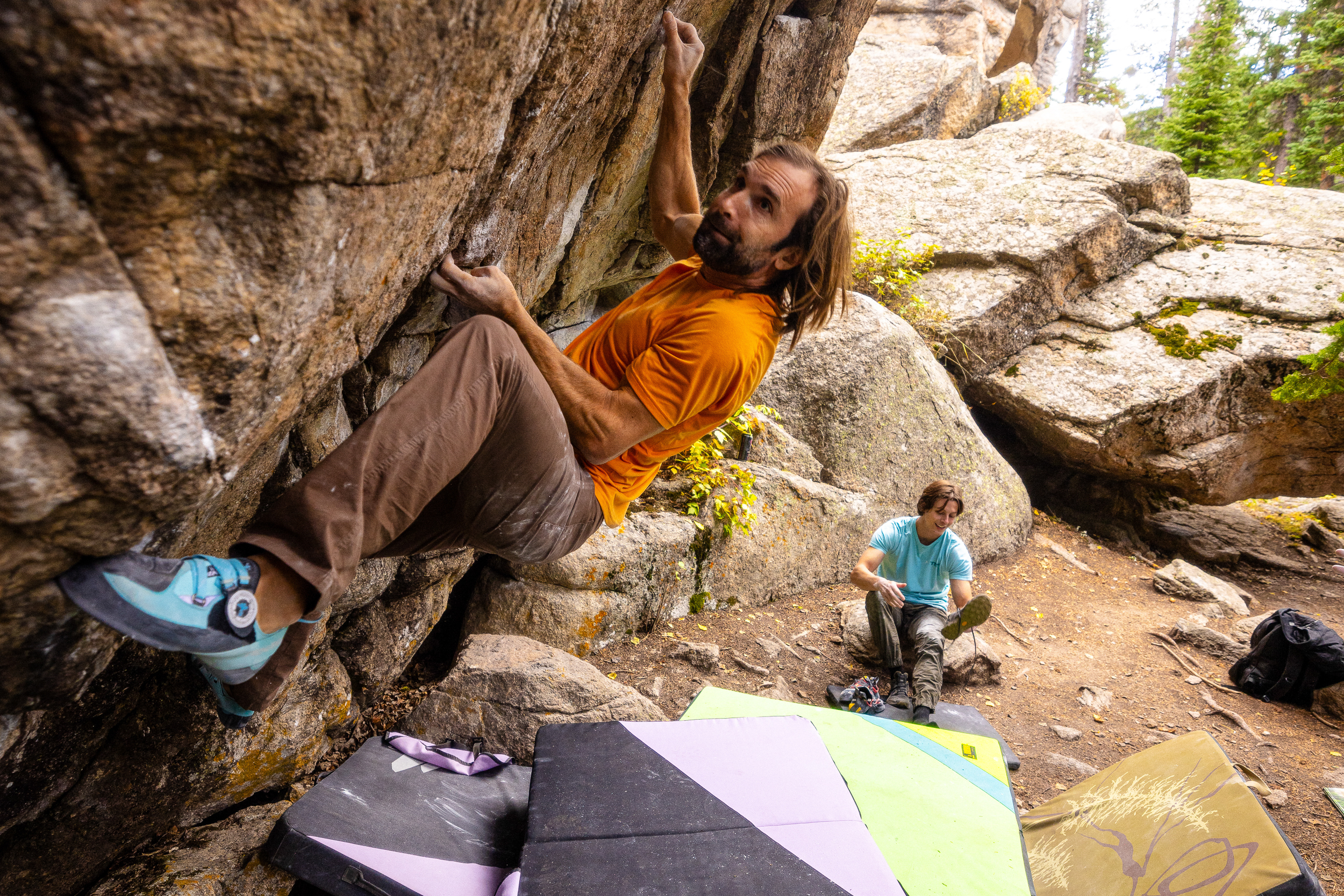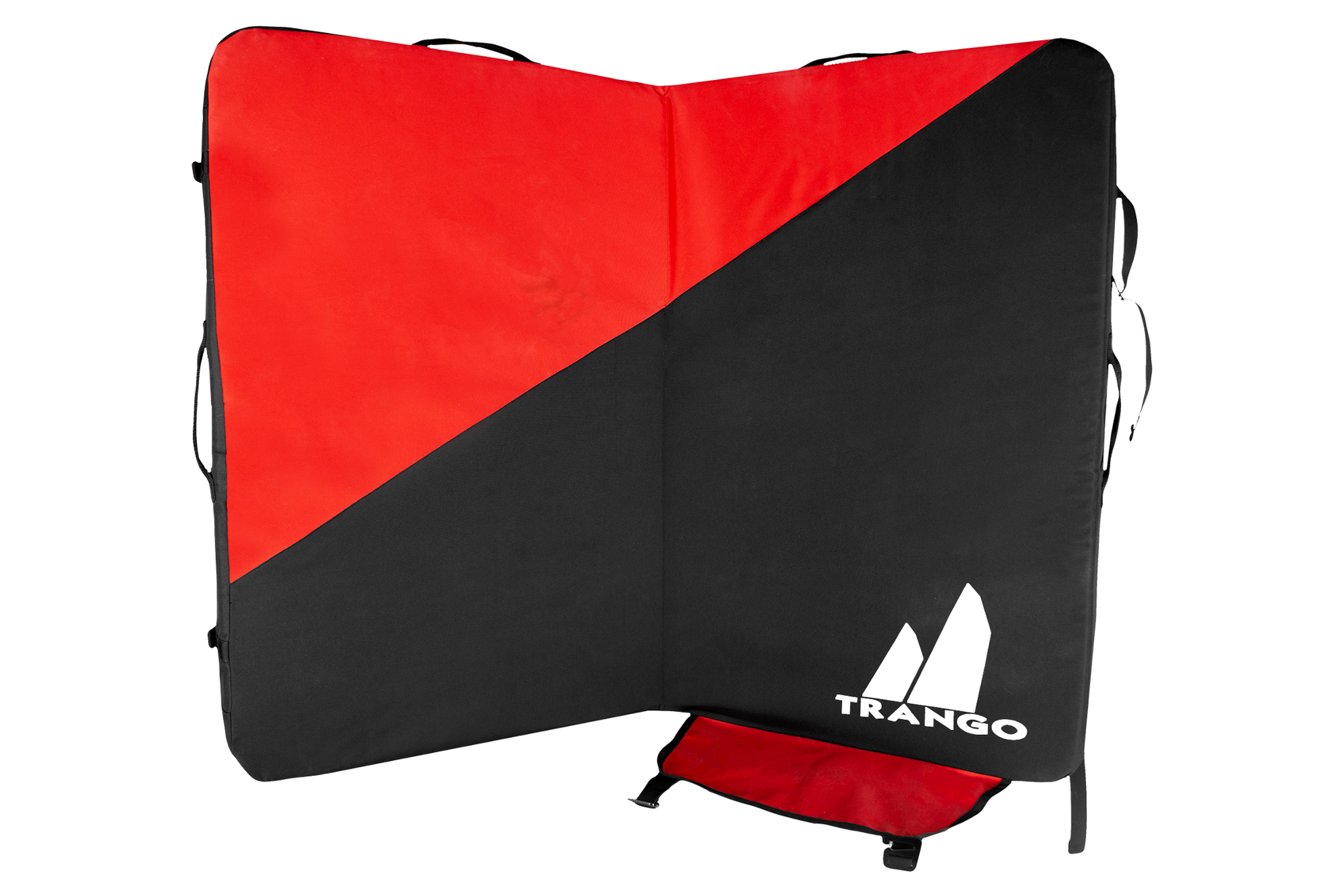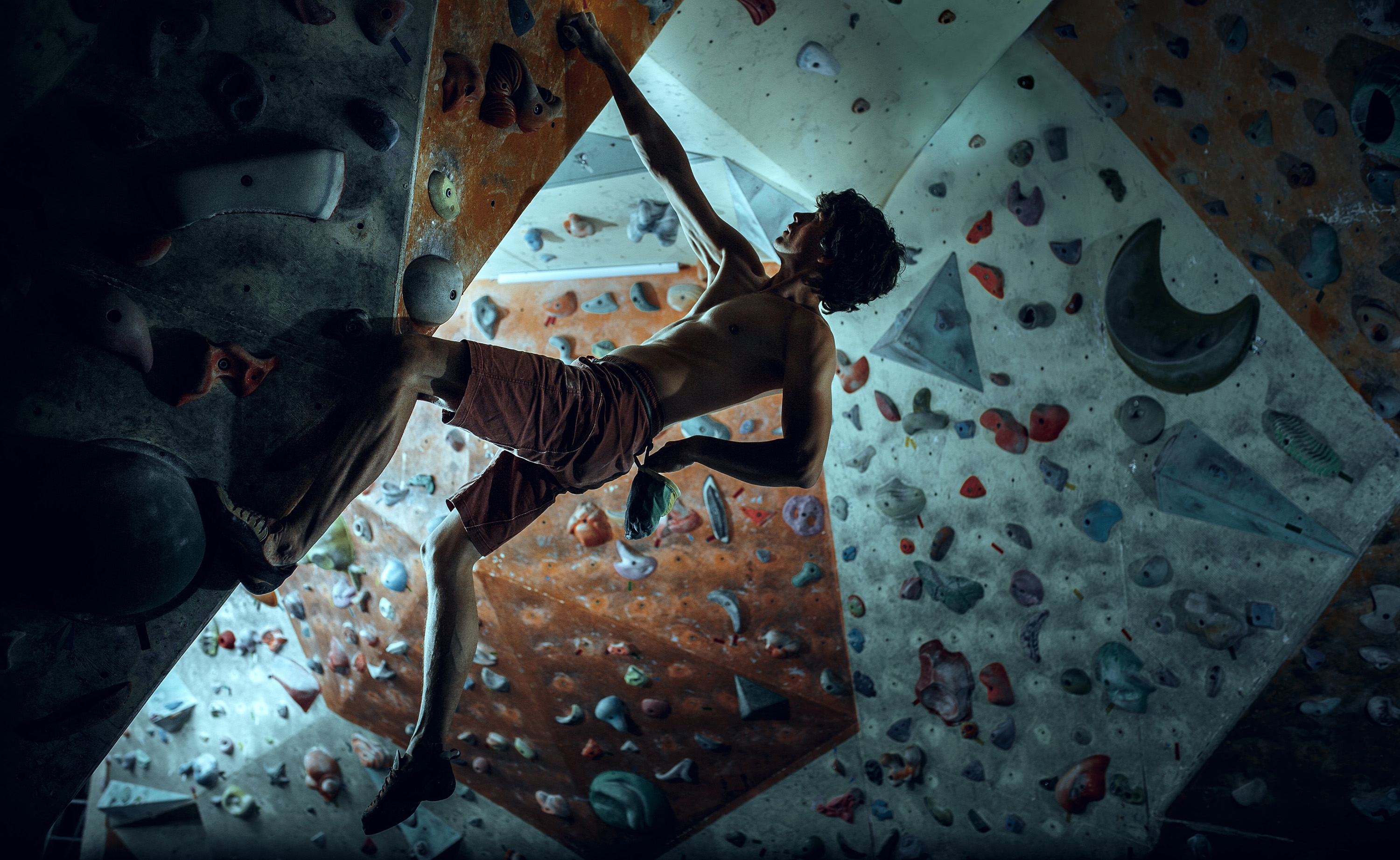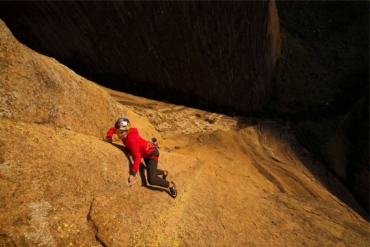Trango launched a smaller, easier-to-schlep crash pad called the Cumulus early this year. But Trango set the bar high with the Stratus, so we were skeptical if a thinner, smaller pad would do justice to Trango’s well-earned position in the bouldering pad hierarchy.
I tested the Trango Cumulus bouldering crash pad at local steep limestone power crucibles and the famous pebble wrestling paradise of Hueco Tanks. It also cushioned landings in an alpine bouldering area in Colorado. I dry-fired off-sit starts, and gusts of gravity spit me off top-outs up to 12 feet tall. I landed on my feet, butt, and back in every orientation possible, luckily never suffering an injury.
In short: The Trango Cumulus lives up to the high expectations set by the brand’s excellent foam layup in the Stratus bouldering crash pad. It’s a lighter, smaller, and much easier-to-carry version. It cannot defy physics, so it’s not as capable of absorbing big impacts from tall blocs as the Stratus can, but it’s an excellent choice if the approach is long and hilly and the boulders are moderately tall.
- Verified weight: 8.8 lbs.
- Dimensions: 47" x 35" x 4"
- Hinge style: 45-degree
- Cover material: Ripstop nylon
Pros
- Lightweight
- Durable
- Hinge design prevents bottoming out
Cons
- Not as protective as more expansive, 5" thick pads
The Guts of the Trango Cumulus Bouldering Crash Pad
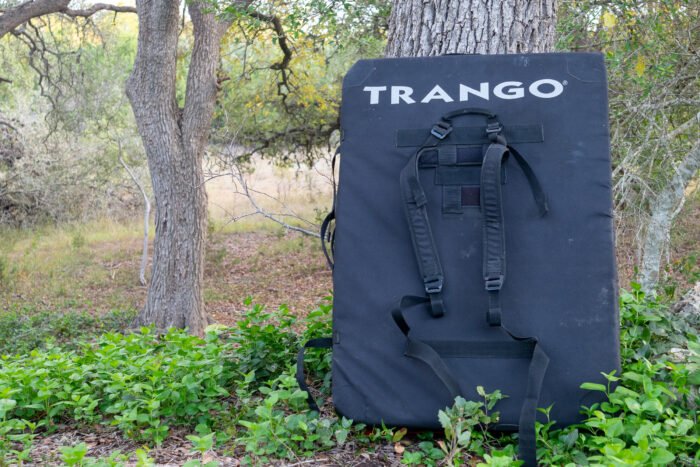
Trango knocked an inch off the thickness of the Stratus on the Cumulus, inserting three layers of foam (1.5″ closed-cell on top, 2″ open-cell in the middle, and .5″ closed-cell on the bottom) for 4 inches of thickness. The landing zone measures 47″ x 35.” The pad folds to half those dimensions via a 45-degree hinge that keeps the landing surface consistent and eliminates soft spots.
The foam is contained by ripstop nylon with reinforced corners and is held shut in the folded configuration by a pair of straps with metal closure buckles. A nylon flap at the bottom contains anything loaded inside the pad, allowing piggybacking another pad for a double carry. Trango places five grab handles along the edges and back of the Cumulus.
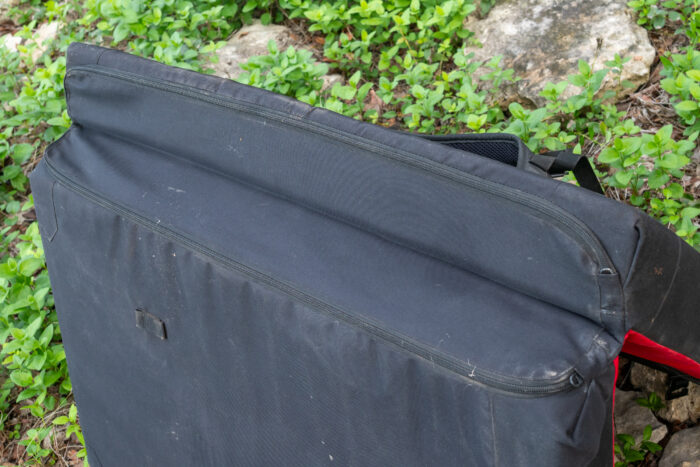
The shoulder straps on the Trango Cumulus can be adjusted to one of two heights, and there are load lifter straps. There is also a minimalist hip belt. Every single buckle on the pad is metal; there isn’t a single plastic closure.
Finally, Trango claims the pad is produced in a human rights-certified factory.
Approaches With the Trango Cumulus Bouldering Crash Pad
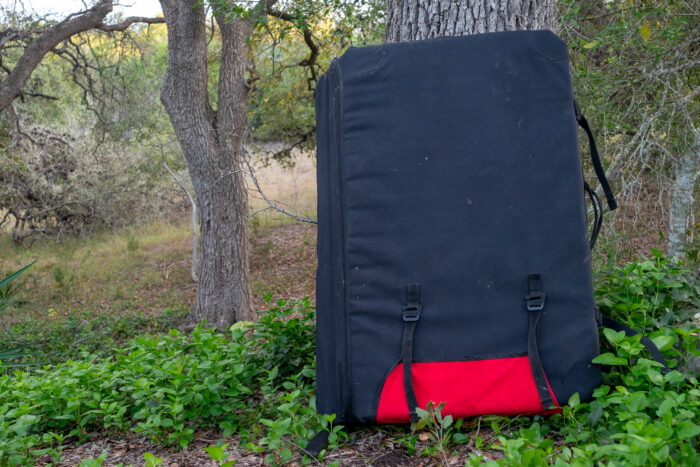
The Trango Cumulus is light; at a verified weight of 8.8 pounds, it’s lighter than any other pad in our buying guide. That aspect alone made carrying the Cumulus a low-effort affair compared to larger and thicker crash pads.
The shoulder straps and hip belt are minimal but appropriate, given the empty weight of the pad. With a typical load of shoes, chalk buckets, brushes, 2 L of water, and food, I never felt like I needed more substantial suspension. But double-carrying a heavier pad may have me wishing for beefier shoulder straps and a wider hip belt.
When loaded with the above items, hauling the single Cumulus pad was easy, even on hour-long hikes at almost 10,000 feet. And the bottom flap negated worries that anything would drop out.
However, the ease of approach could have been outweighed by the smaller area and thinner foam compared to the larger and thicker bouldering crash pads I tested concurrently.
The Drop Zone
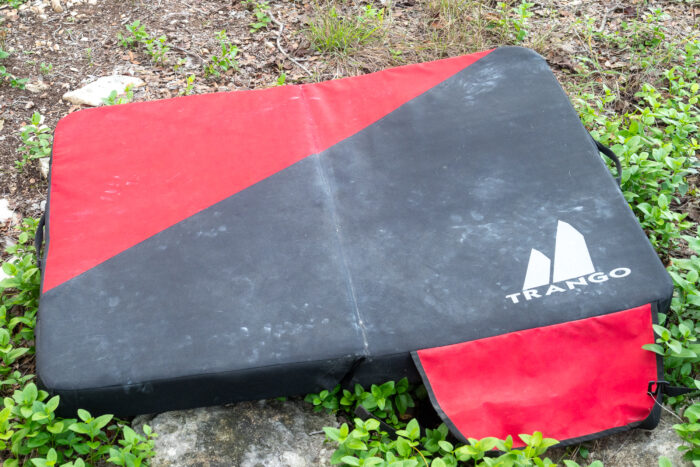
I had no issues bombing my 6-foot tall, 168-pound carcass onto the Trango Cumulus pad from blocs in the 8- to 10-foot height range. The pad served on 12-footers, but sometimes I did hesitate, fearing missing the smaller area of the pad compared to others on hand. I also thought twice about ascending taller boulders when the landing zone had rocks, tree roots, or other obstructions preventing a flat surface.
But for problems up to 10 feet with flat landings, the Trango Cumulus hit the sweet spot between ease of carry and cushioning ability for my frame and body weight.
I historically prefer pads with a 45-degree hinge, and the Trango Cumulus hinge performed to my liking. I feel this method best prevents falling into a potential crease and bottoming out or twisting the ankle or foot by landing in a gap.
The grab handles and light weight made the Cumulus extremely easy to move under a boulderer as they progressed through a horizontal or traversing problem.
Durability
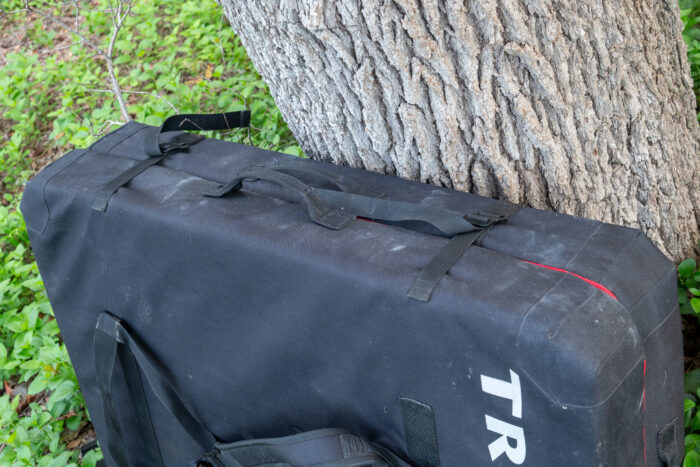
The Trango Cumulus suffered the demise of any bouldering crash pad in the hands of dirtbags. It got dragged across and fallen on abrasive stone, thrown up and down boulders fields, and treated with utter disrespect. The Cumulus was a camp chair, couch, cooking surface, and bed. And it was also the dog bed in my van during long road trips.
It also served daily duty under my home training boards. After almost a year of constant use, the nylon ripstop covering looks as good as new. The only signs of use were a few spots of ground-in dirt and a collection of chalk hand prints. And none of the buckles suffered any damage, despite being trampled endlessly.
I feel the foam did break in slightly. The initial touch seems to have softened, but this was welcome to ease the landing from blowing off sit starts. I didn’t feel like this affected the ability to absorb larger hits. And it may have lessened the risk of turning an ankle on abrupt falls off initial moves.
Trango Cumulus Bouldering Crash Pad: Final Thoughts
If the approach is arduous, the problems aren’t tall, or you’re a smaller climber, the Trango Cumulus is an excellent choice. The light weight steals the show in these circumstances, making everything about transporting the pad and required bouldering goodies easier.
It’s also an excellent tertiary pad to back up a larger pad or to increase the landing zone through multiple pads. Again, the low weight wins.
Finally, the Trango Cumulus proved robust, shrugging off abusive treatment without flinching. For an MSRP of $151, it’s also a solid value.
